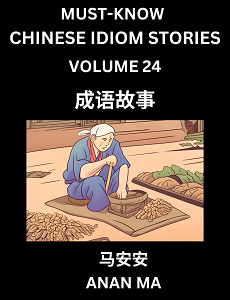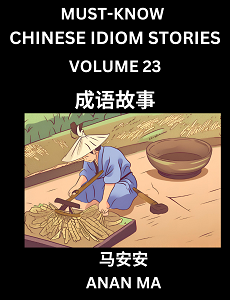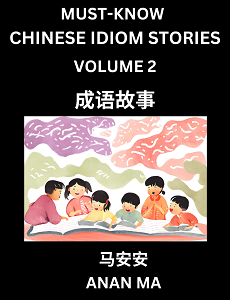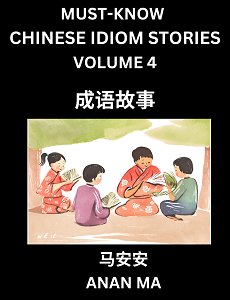Learn Chinese Idiom with Pinyin and English

- Idiom in Chinese-士为知己者死,女为悦己者容。
- Pinyin of Idiom– shì wèi zhī jǐ zhě sǐ, nǚ wèi yuè jǐ zhě róng.
- Idiom’s Meaning in English– This Chinese idiom expresses the profound sentiment that a gentleman would sacrifice himself for a true friend, while a woman would dress herself up to please her beloved. It encapsulates the idea of self-sacrifice and devotion to one’s close relationships.

Chinese Idiom Stories Books (HSK All Levels):
- Books to Learn Chinese Idiom Stories (Part 1)
- Books to Learn Chinese Idiom Stories (Part 2)
- Books to Learn Chinese Idiom Stories (Part 3)
Learn Chinese Idiom Story in English (成语故事的英文)
The idiom “shì wèi zhī jǐ zhě sǐ, nǚ wèi yuè jǐ zhě róng” originates from an ancient sentiment of profound friendship. It is said that during the Spring and Autumn period, Guǎn Zhòng, a renowned general and statesman, and Bào Shūyá were close friends with a profound bond of mutual understanding and trust. Bào Shūyá recognized Guǎn Zhòng’s talent and helped him escape danger on several occasions. Later, when Guǎn Zhòng became the prime minister of the Qi state, he devoted himself wholeheartedly to assisting King Huan of Qi, making Qi a powerful country in his time. This act was a way for him to repay Bào Shūyá’s kindness and favor. Meanwhile, the phrase “nǚ wèi yuè jǐ zhě róng” often refers to a woman dressing herself up carefully to please her beloved, showing her best side to the one she cherishes.

Learn Idiom Story in Chinese (成语故事)
“士为知己者死,女为悦己者容”这个成语源自古时的一种深刻情感观。相传,春秋时期的名将管仲与鲍叔牙是莫逆之交。鲍叔牙深知管仲的才华,曾助他多次脱离险境。后来,管仲成为齐国的相,为了报答鲍叔牙的知遇之恩,他尽心尽力辅佐齐桓公,使得齐国成为当时的强国。而“女为悦己者容”则常用来形容女子为了心爱之人而精心打扮自己,以展现最美的一面。

Learn Keywords with English, Simplified Chinese Characters, and Pinyin (关键词)
- 管仲 (Guǎn Zhòng): a famous general and statesman in the Spring and Autumn period
- 鲍叔牙 (Bào Shūyá): a close friend of Guǎn Zhòng
- 莫逆之交 (Mò nì zhī jiāo): a close friendship based on mutual understanding and trust
- 知遇之恩 (Zhī yù zhī ēn): the kindness and favor shown by someone who recognizes and appreciates one’s abilities
- 齐国 (Qí guó): a state in ancient China
- 相 (Xiàng): prime minister or chief minister
- 精心打扮 (Jīng xīn dǎ bàn): dress up carefully

Pinyin of Idiom Story (故事的拼音)
“Shì wéi zhījǐ zhě sǐ, nǚ wèi yuèjǐ zhě róng” zhège chéngyǔ yuán zì gǔ shí de yī zhǒng shēnkè qínggǎn guān. Xiāngchuán, chūnqiū shíqí de míngjiàng guǎnzhòng yǔ bàoshūyá shì mònì zhī jiāo. Bàoshūyá shēn zhī guǎnzhòng de cáihuá, céng zhù tā duō cì tuōlí xiǎn jìng. Hòulái, guǎnzhòng chéngwéi qí guó de xiāng, wèile bàodá bàoshūyá de zhīyù zhī ēn, tā jìnxīn jìnlì fǔzuǒ qí huángōng, shǐdé qí guó chéngwéi dāngshí de qiángguó. Ér “nǚ wèi yuèjǐ zhě róng” zé chángyòng lái xíngróng nǚzǐ wèile xīn’ài zhī rén ér jīngxīn dǎbàn zìjǐ, yǐ zhǎnxiàn zuìměi de yīmiàn.




